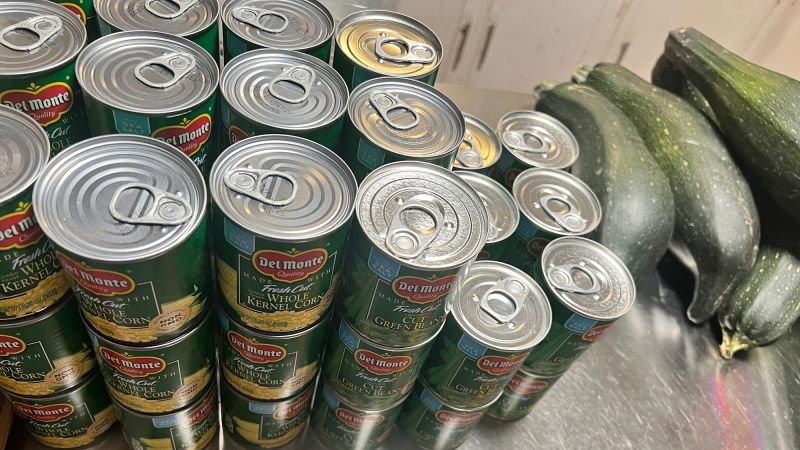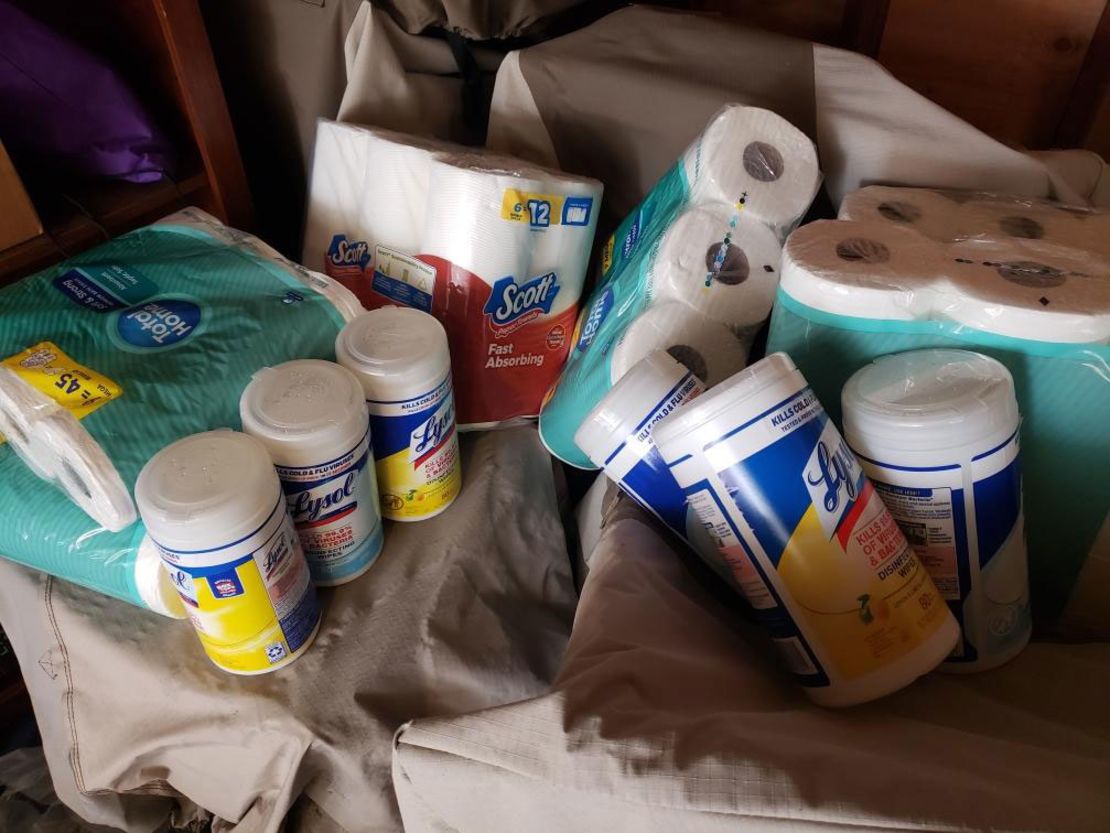Physical Address
304 North Cardinal St.
Dorchester Center, MA 02124
Physical Address
304 North Cardinal St.
Dorchester Center, MA 02124

New York
CNN
—
It’s not March 2020, but it sure feels like it for Herschel Wilson.
Wilson, based in Tacoma, Washington, began building a small warehouse of essential goods for three pets and five people in August after Donald Trump was nominated as the Republican presidential nominee with an economic agenda calling for higher tariffs.
After Trump won the election, “that changed everything again, and I started hoarding almost everything,” Wilson told CNN. This includes canned goods, bottled water and, yes, lots and lots of toilet paper rolls. So far, he estimates he’s spent $300 on storage since the election. Going forward, she said she plans to spend an extra $100 each month on top of her regular food spending.
Unlike the beginning of the pandemic, when Wilson was also drawn to storage, this time his main concern is not necessarily that he won’t be able to find those goods. On the contrary, his belief is that it will cost much more if President-elect Trump follows through on his tariff threats.
These include tariffs of 10% to 20% on all goods imported into the US, 60% or more of goods from China and 25% on imports from Mexico and Canada.
Many trade experts and economists are skeptical that Trump will implement all of the tariffs he has promised and may instead use them. negotiation tactics. This could mean that they end up having certain assets out of tariffsAs happened with the tariffs imposed by Trump during his first term. There is also the possibility that Trump may impose new tariffs on imports from some countries.
However, the rates it has put up for sale have a chance raising prices significantly consumers pay for almost everything that is not entirely made in the USA, because very few products are.
Wilson agrees, especially as a small business owner. He and his wife operate Painting Panda Pottery Studio, where customers paint their own pottery, including mugs and plates. They often buy unpainted ceramic pieces through US dealers. But ultimately the goods come from China and other countries, he said. “I know if there are tariffs, then we’re going to have to pass that on to our customers,” he told CNN, meaning he would have to charge higher prices..
Scott Lincicome, vice president of economics and commerce at the Cato Institute, advises individual consumers to stockpile. “We certainly don’t know if we’re actually getting this global tariff, and certainly not on day one,” he said, noting that Trump imposed tariffs on all imported goods when he took office on Jan. 20. Trump is sworn in. impose higher rates Mexico, Canada and China on the first day of his presidency. So stockpiling to try to save money down the road could be “preparing for something that never happens,” he said.
Also, as seen during the pandemic, “consumer storage can naturally lead to higher prices and empty store shelves,” Lincicom said. Plus, money going into storage means consumers have less to spend in other areas.
Gaylon Alcaraz understands he’s taking a gamble on hoarding assets, especially since he’s racked up more than $200,000 in student loan debt while earning his doctorate and helping cover college tuition for his two children.

But the prospect of having to pay much more for goods in the future due to higher tariffs prompted him and his mother, who supports him financially, to stock the goods after the election.
“When I think about it logically, sometimes I think it’s irrational, but I remember how hard it was during the pandemic when we couldn’t find some things and when we did find them, they were very expensive,” Alcaraz, of Chicago. A resident who works as an executive director of a non-profit organization told CNN.
“If we don’t need it, it’s fine. We will still have it,” said Alcaraz, who lives alone. “Every time we see things for sale, every time they charge us, we say, ‘Let’s get the things that we had a hard time finding before, or that were too expensive.'”
These include nasty goods that were in dire shortage due to panic buying during the pandemic, such as toilet paper, Lysol wipes, paper towels and other cleaning supplies. But when it comes to picking food, “it’s a little too much for me.”
After all, storage feels like he’s “robbing Peter to pay Paul,” he said, putting his debt burden above all immediate living expenses.
It’s not just individuals trying to get ahead of higher rates, big companies are too.
For example, Stanley Black & Decker CEO Patrick Hallinan said at the company’s investor day last month that it is investing in building higher inventory levels “for a number of reasons, not the least of which is tariffs.” That’s meant to limit how much the company has to raise commodity prices if tariffs rise as they expect, he said.
During Trump’s first term, when higher tariffs were imposed on Chinese goods, “we weren’t proactive on pricing,” he said. “What we have learned from this is that we will be proactive in pricing going forward.”

Also, U.S. manufacturers, particularly those in the consumer goods sector, have recently “increased safety stocks to help mitigate imminent tariff hikes,” said John Piate, vice president of supply chain consulting firm GEP. GEP and S&P Market Intelligence’s monthly report survey of 27,000 businesses worldwide.
According to the report, purchasing activity for imported goods among North American manufacturers reached the highest level in more than a year last month.
Another approach companies are pursuing is to work out contingency plans when there is more certainty about when potential new tariffs will go into effect, according to recent company earnings calls. These plans, in some cases, involve speeding up shipments and relocating some production out of countries where costs will be higher.
Steps that big companies are taking or plan to take could ultimately lessen the blow to consumers from higher rates, Lincicome said.
In the absence of higher rates, Wilson, a father of three children under the age of 13, said none of the goods he bought will go to waste. “My kids eat a lot, so I don’t want to pay double the price of what I’m paying right now or 20% more,” he told CNN. “I know the things I have now won’t last four years, obviously. And that is not the intention. Really, it’s a way to take the steam out of spending later.”